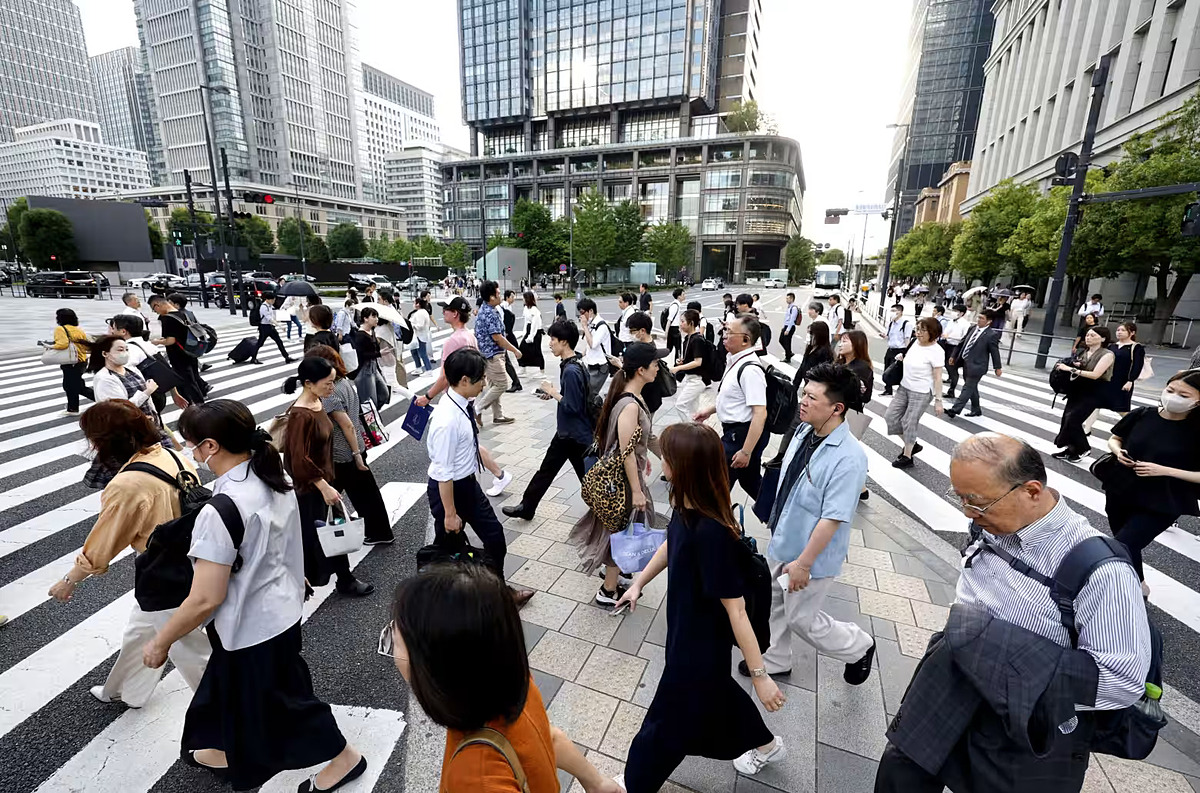This decline is the largest since record-keeping began in 1968, according to government data released on 6/8. In 2024, Japan recorded only 687,689 births, the lowest ever, while the national average population decline was 0.75%.
The northeastern region was hardest hit, with Akita and Aomori prefectures experiencing the highest declines in native population, at 1.91% and 1.72% respectively, followed by Kochi prefecture at 1.71%. In contrast, Tokyo was the only region to record a 0.13% increase in its native population, thanks to an influx of new residents. Including foreign residents, only Tokyo and neighboring Chiba prefecture saw population growth.
According to demographic statistics from the Ministry of Internal Affairs, as of 1/1/2025, Japan's total population (including foreign residents) was 124,330,690, a decrease of about 554,000 people compared to the previous year. People aged 65 and over accounted for 29.58% of the population, while the 15-64 age group made up 59.04%, both slightly higher than the previous year.
 |
People cross an intersection in Tokyo. Photo: Nikkei |
People cross an intersection in Tokyo. Photo: Nikkei
In contrast to the declining native population, the number of foreign residents in Japan reached a record high of 3,677,463, a 10.65% increase compared to the previous year since data collection began in 2013. Hokkaido saw the highest increase in foreign residents at 19.57%. About 85.77% of foreign residents are of working age, helping to offset labor shortages.
Japan's declining birth rate stems from a number of factors: high child-rearing and housing costs, job insecurity, and the increasing burden of elder care. Young Japanese people often delay or forgo marriage to prioritize their careers. Women are increasingly reluctant to have children due to a lack of work-life balance support.
The Japanese government has implemented several measures to encourage childbirth: financial assistance, expanded childcare services, improved working conditions for women, and housing support for young couples. However, experts believe these efforts are not enough to reverse the trend.
Former Prime Minister Fumio Kishida warned that without timely action, Japanese society will not be able to maintain its basic functions. In 2023, he pledged to double the budget for child policies to boost the birth rate.
Thuc Linh (Kyodo)












